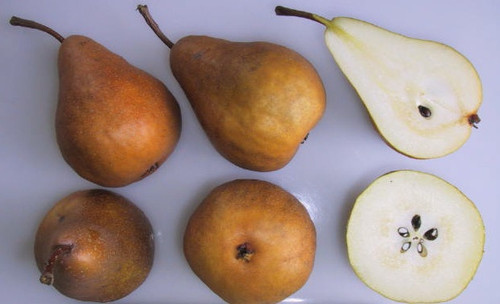Seems to have originated in the gardens of the Capucin Monastery at Louvain, Belgium, where there was recorded, about 1823, an old pear tree known to the monks as the Pastorale de Louvain. As the variety attracted attention it became widely disseminated and eventually found its way around Europe and to England where the name Easter Beurré was settled upon. The fruit is described in the literature as tender and melting, juicy, buttery, sweet, with a rich, pleasant flavor, very aromatic; quality very good.
- Pollination Group: Buerre Bosc, Williams, Comice, Winter Nellis, Winter Cole, Doyenne Du Comice, Beurre Diel, Yellow Huffcap, Durondeau.
- Size: to approx. 3 metres tall when mature
- Uses: eating
- Harvest: very late
- Features: historic
Hedrick U.P. (1921). Twenty-ninth Annual Report, Vol. 2, Part II, The Pears of New York, Report of the New York Agricultural Experiment Station for the year 1921. State of New York - Department of Agriculture. Albany: J.B. Lyon Company, 1921








